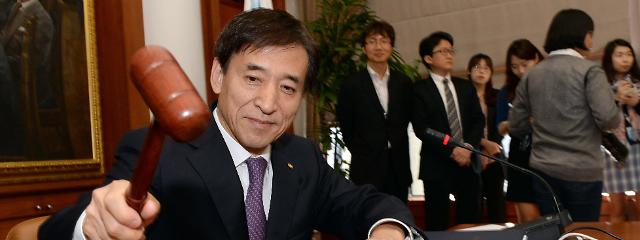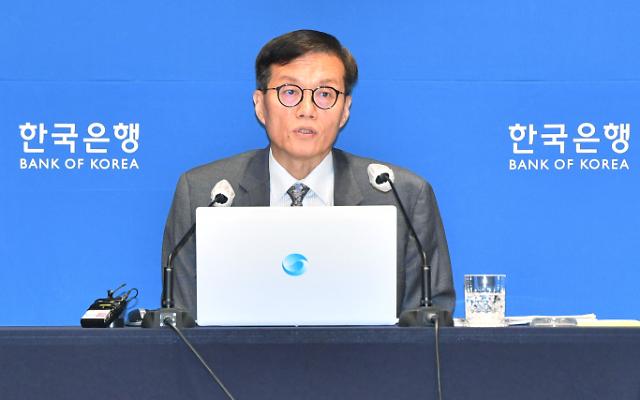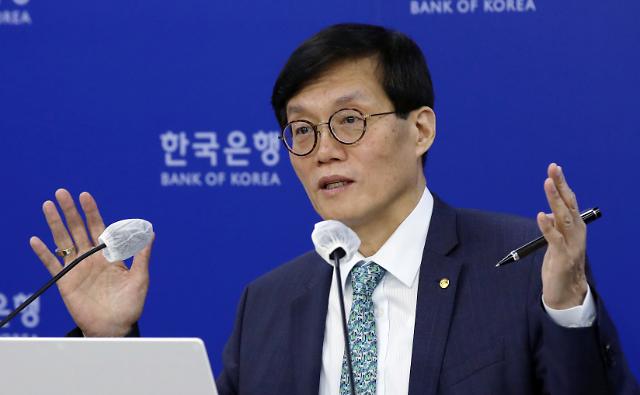
South Korea's central bank Wednesday lowered the key interest rate by 0.25 percentage point to 2 percent, a level that was maintained from February 2009 to June 2010, in a move to further support the government's stimulus measures.
The Bank of Korea (BOK) made the rate cut, the second this year, after keeping the benchmark seven-day repo rate on hold at 2.25 percent for two months. The BOK cut the key rate by 0.25 percentage point to 2.25 percent in mid-August.
Following is the full text of a statement the BOK issued after a meeting of its Monetary Policy Committee.
"Based on currently available information the committee considers that, although the trend of economic recovery in the United States has been sustained, the sluggishness of economic activities in the euro area has continued while trends of economic growth in emerging market countries have differed from country to country. The committee forecasts that the global economy will sustain its modest recovery going forward, centering around the United States, but judges that the possibility exists of its being affected by the changes in global financial market conditions stemming from the shift in the U.S. Federal Reserve’s monetary policy stance, by the prolongation of economic sluggishness in the euro area, by the weakening of economic growth in some emerging market countries, and by geopolitical risks.
"In Korea, while exports have sustained a favorable pattern and consumption has improved somewhat, the committee judges that facilities investment remains sluggish and that economic agents’ sentiment has only partially recovered. On the employment front, the number of persons employed has expanded steadily, led by increases in the 50-and-above age group and in the service sector. The committee expects that the negative output gap in the domestic economy will gradually narrow going forward, although the time of its disappearance will be somewhat later than previously forecast.
"Consumer price inflation fell from 1.4 percent the month before to 1.1 percent in September, due mainly to an increase in the extent of decline in petroleum product prices and to slowdowns in the rates of industrial product price increase. Core inflation excluding agricultural and petroleum product prices fell to 1.9 percent, from 2.4 percent in August. The committee forecasts that, after remaining low due primarily to the stability of agricultural and international oil prices, inflation will gradually rise next year; it judges, however, that inflationary pressures will be somewhat weaker than previously expected. In the housing market, the upward trends of sales prices in both Seoul and its surrounding areas and the rest of the country accelerated. As to leasehold deposit prices, the scale of their increase widened somewhat in Seoul and its surrounding areas, while their uptrend in the rest of the country exhibited a pace similar to that in the preceding month.
"In the domestic financial markets, amid heightened international financial market volatility, stock prices have fallen significantly, influenced for example by a shift to net selling of stocks by foreign investors. The Korean won has depreciated rapidly, and long-term interest rates have fallen substantially.
"Looking ahead, while supporting the recovery of economic growth, the committee will conduct monetary policy so as to maintain price stability over a medium-term horizon and pay greater attention to financial stability. In this process, it will closely monitor external risk factors such as the shift in the U.S. Federal Reserve’s monetary policy stance, as well as the trends of household debt and of capital flows."




![[Weekly Stock Market] Investors to focus on BOKs interest rate decision](https://image.ajunews.com/content/image/2023/02/19/20230219023158359153.jpg)